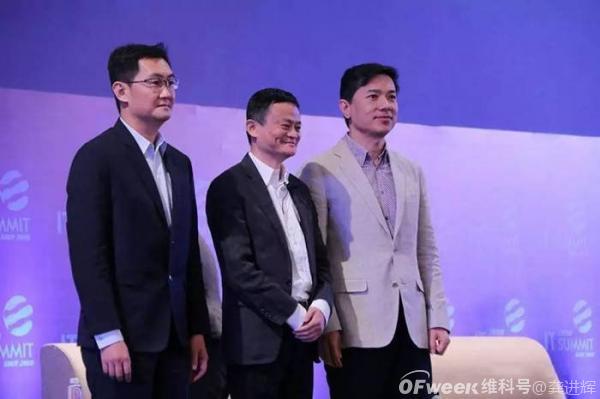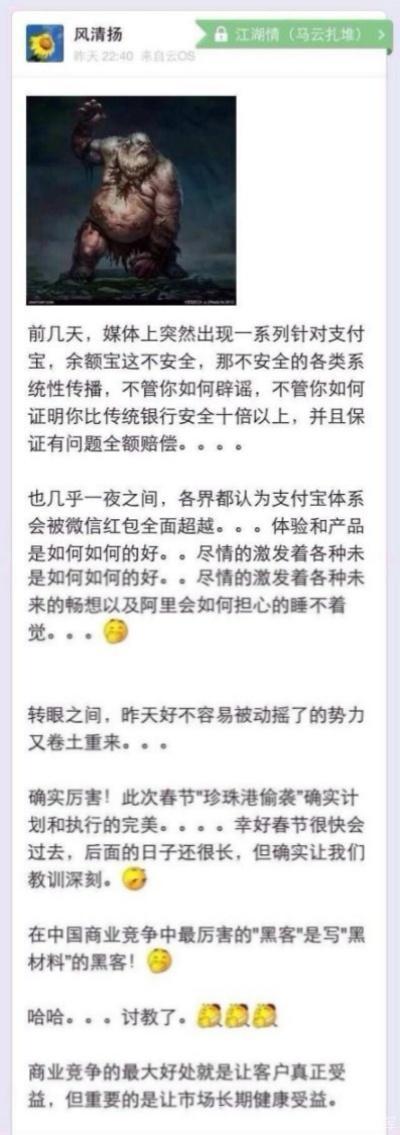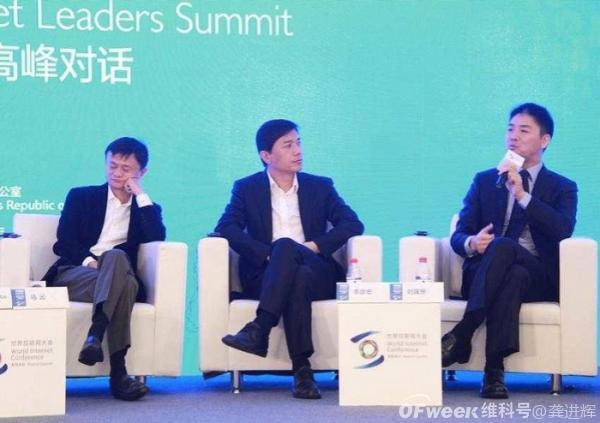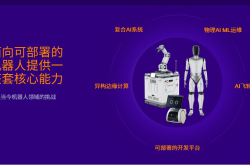Looking back ten years ago: the Internet in 2014 was full of excitement
![]() 10/08 2024
10/08 2024
![]() 511
511

After the National Day holiday, there are less than 100 days left in 2024. Apart from the AI large models, which have been a major trend throughout the year, there have not been many truly exciting highlights in the tech and internet world. In comparison, I find myself yearning for the good old days of ten years ago. The internet landscape in 2014 was truly vibrant, filled with intense competition and plenty of exciting developments!
In that year, Tencent secured its place in the mobile internet era with WeChat, giving it the confidence to expand externally. It invested in Dianping, JD.com, and 58.com in February, March, and June respectively, focusing its efforts on local life services and e-commerce. Its long-time rival, Ali Group, was also busy, acquiring Gaode and UC in February and June respectively, and fully acquiring CITIC 21CN in October, renaming it "Ali Health".
Meanwhile, China Media Capital and Intime Department Store were also incorporated into Ali Group's empire in March, with the former eventually becoming Ali Pictures. While on a buying spree, Ali Group was also busy with its own major events. In June of that year, it publicly released its list of partners for the first time, and successfully listed on the New York Stock Exchange in September, creating the largest IPO by market value in American history. This marked the pinnacle of Jack Ma's career.
Speaking of listings, before Ali Group's listing, its fiercest competitor, JD.com, beat it to the punch by listing on Nasdaq in May. In June, Tencent fulfilled its investment promise to JD.com by creating a primary entry for JD.com within WeChat, giving JD.com immense exposure. Also in May, Cheetah Mobile and Jumei International successfully completed their listings, with the former finally proving itself after years of rivalry with Qihoo 360. Its unwavering perseverance is truly admirable.
In that year, Baidu, which together with Ali Group and Tencent formed the "BAT" triumvirate, was also actively making moves. In January, it fully acquired Nuomi.com, which was renamed "Baidu Nuomi" two months later, becoming a frontrunner in local life services and O2O. Additionally, in December of that year, Baidu made a strategic investment in Uber. Although Didi and Kuaidi were the main players in the ride-hailing wars at the time, and Uber only entered the Chinese market in July, Baidu's investment undoubtedly gave Uber a much-needed boost in its Chinese expansion.
Speaking of Didi and Kuaidi, it's impossible not to mention the ride-hailing wars that swept the nation around the Spring Festival in late January. The two major players fiercely competed by offering subsidies, driving prices down to just a few yuan per ride. Of course, the rivalry between Didi and Kuaidi was essentially a proxy war between Tencent and Ali Group, aimed at accelerating the adoption of mobile payments, an indispensable infrastructure in the mobile era.

On the front lines of this battle, WeChat Red Envelopes debuted during the Spring Festival that year, captivating the nation with their novelty. This was a godsend for the nascent WeChat Pay, which managed to link hundreds of millions of bank cards overnight, achieving unprecedented success. This vividly illustrated the power of achieving great things with little money. Clearly, fueled by social connections, WeChat Pay soared, directly threatening Alipay and touching a nerve with Jack Ma, who likened it to a "Pearl Harbor-style sneak attack."
In that year, the frequent clashes with competitors undoubtedly put some pressure on Jack Ma. In April, UC and Ali Group jointly launched Shenma, their mobile search engine brand, instantly alerting Baidu. Soon after, a verbal spat erupted between the two companies. Seven months later, at the first World Internet Conference, Jack Ma and Liu Qiangdong, who had never met before, finally came face to face. Although both tried to maintain composure, their words were laced with subtle jabs.

When Jack Ma famously said, "Alibaba aims to cultivate more JD.coms," it drew laughter from the audience, including Liu Qiangdong, though his smile seemed forced. In the same setting, Lei Jun, brimming with confidence, set a bold goal: to make Xiaomi the world's leading smartphone company within 5-10 years. Lei Jun's confidence was not unfounded; Xiaomi had already risen to become China's number one and the world's third-largest smartphone brand in just three years. He firmly believed that with steady progress, Xiaomi's goal was within reach.
In response, Bruce Sewell, Apple's senior vice president, bluntly remarked, "It's easy to talk." Lei Jun, undeterred, responded with charisma, "Jack Ma once said, 'You have to have a dream. What if it comes true?'" Looking back at the smartphone industry in 2014, Xiaomi was not alone in its success. In late January, Lenovo splashed out $2.9 billion to acquire Motorola Mobility, aiming to replicate its success in the PC industry. In early February, Huang Zhang announced his return, vowing to lead Meizu to a triumphant comeback and launching the youth-focused sub-brand Meilan in December.
Also in December, Unwilling to accept Qihoo 360 teamed up with Coolpad to form the joint venture Qiku, re-entering the smartphone market with the intention of competing with Xiaomi, which was at its peak at the time. Around the same time, the adventurous Jia Yueting unveiled the "SEE Plan," and LeTV became the world's first internet company to announce plans to manufacture electric vehicles. The concept of "ecological chemical reaction " was extended to the automotive sector, and Faraday Future entered the stage of history. In the same year, new players in the electric vehicle market such as XPeng, NIO, Youxia, and Singularity also emerged, sparking a wave of internet-driven electric vehicle innovation.
As we all know, these new players in the electric vehicle market have since gained the favor of internet giants such as BAT, Meituan, and ByteDance, embarking on an expansion path. Looking back to 2014, however, Meituan and ByteDance were still relatively small unicorns, reliant on capital injections for their growth. In May, Meituan secured a $300 million Series C funding round, with Ali Group among the investors. In June, the predecessor of ByteDance, Toutiao, received a $100 million Series C funding round, with Weibo participating in the investment.

Whether by coincidence or fate, Sequoia Capital featured prominently in both Meituan and Toutiao's Series C funding rounds. However, for various reasons, their respective investors, Ali Group and Weibo, eventually fell out with Meituan and Toutiao, gradually drifting apart. The story doesn't end there. In May of that year, Ele.me received an $80 million investment from Dianping. A year later, Dianping merged with Meituan, while Ele.me switched sides to join the Ali Group and was eventually fully acquired. Since then, the two companies, now under different umbrellas, have been locked in a relentless battle. The intricate web of relationships among these players is truly a tangled mess!
By the way, before Jumei International's listing in February 2014, its rival Lefeng.com received a strategic investment from Vipshop, taking a 75% stake. While this was undoubtedly a boon for Lefeng.com, it also meant losing its independence and the chance to experience the glory of a public listing like Jumei International. Such is life!
Looking back from the perspective of 2024, the age-old truth that "the survivor is the king" after the tide of competition has been amply demonstrated. To this day, Ali Group and Tencent remain formidable, while Meituan and ByteDance have risen to prominence with clear trajectories. Xiaomi continues to thrive in the smartphone market, and XPeng and NIO are also gaining momentum. In contrast, many others have not stood the test of time, some struggling to survive and others collapsing altogether. Of course, history continues to unfold, and we must let the chips fall where they may.







